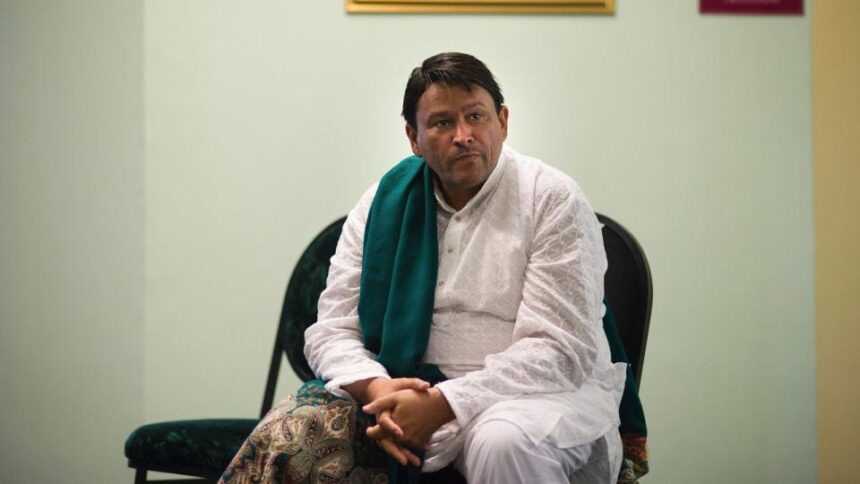Muhsin Hendricks, known as the world’s first openly gay imam, was shot dead in a targeted attack near Gqeberha, South Africa, on Saturday morning.
The 57-year-old cleric, who founded an inclusive mosque for LGBTQ+ Muslims in Cape Town, was ambushed while traveling in a car, police confirmed.
According to law enforcement, two masked gunmen blocked the vehicle before firing multiple shots, fatally wounding Hendricks. The attack, captured on CCTV footage, shows an assailant running to the back passenger window and opening fire. Police have yet to identify the suspects or establish a clear motive, but LGBTQ+ advocates fear the killing may have been a hate crime.
Hendricks’ death has sent shockwaves through the global LGBTQ+ community, with tributes pouring in from activists and religious leaders alike. Julia Ehrt, executive director of the International Lesbian, Gay, Bisexual, Trans and Intersex Association (Ilga), described Hendricks as a beacon of hope for queer Muslims. “He supported and mentored so many people in South Africa and around the world in their journey to reconcile with their faith,” she said.
The imam had long faced threats due to his outspoken stance on LGBTQ+ inclusion in Islam. He came out in 1996 and later founded The Inner Circle, a support group for queer Muslims. Hendricks’ mosque, Masjidul Ghurbaah, became a safe space for marginalized Muslims seeking to reconcile their faith with their sexuality, challenging traditional interpretations of Islamic teachings.
South Africa, despite having a progressive constitution that protects LGBTQ+ rights, continues to witness acts of violence against gay individuals. “Born free, killed by hate” is how some activists have described the tragic irony of Hendricks’ murder in a country that legalized same-sex marriage in 2006 but still grapples with deeply rooted prejudices.
In 2022, Hendricks was featured in The Radical, a documentary highlighting his mission to create an inclusive faith community. In the film, he acknowledged the risks he faced but remained resolute: “The need to be authentic was greater than the fear to die.” His work left an indelible mark, particularly on young queer Muslims across Africa, including in Nigeria, where homosexuality remains illegal.
As police continue their investigation, the LGBTQ+ community mourns a leader whose courage transcended borders. “Your leadership, courage, and unwavering dedication to inclusive faith communities have left an indelible mark,” said Reverend Jide Macaulay, a British-Nigerian LGBTQ rights activist. Hendricks’ legacy, many believe, will live on in the countless lives he touched through his advocacy for faith, inclusion, and human dignity.

